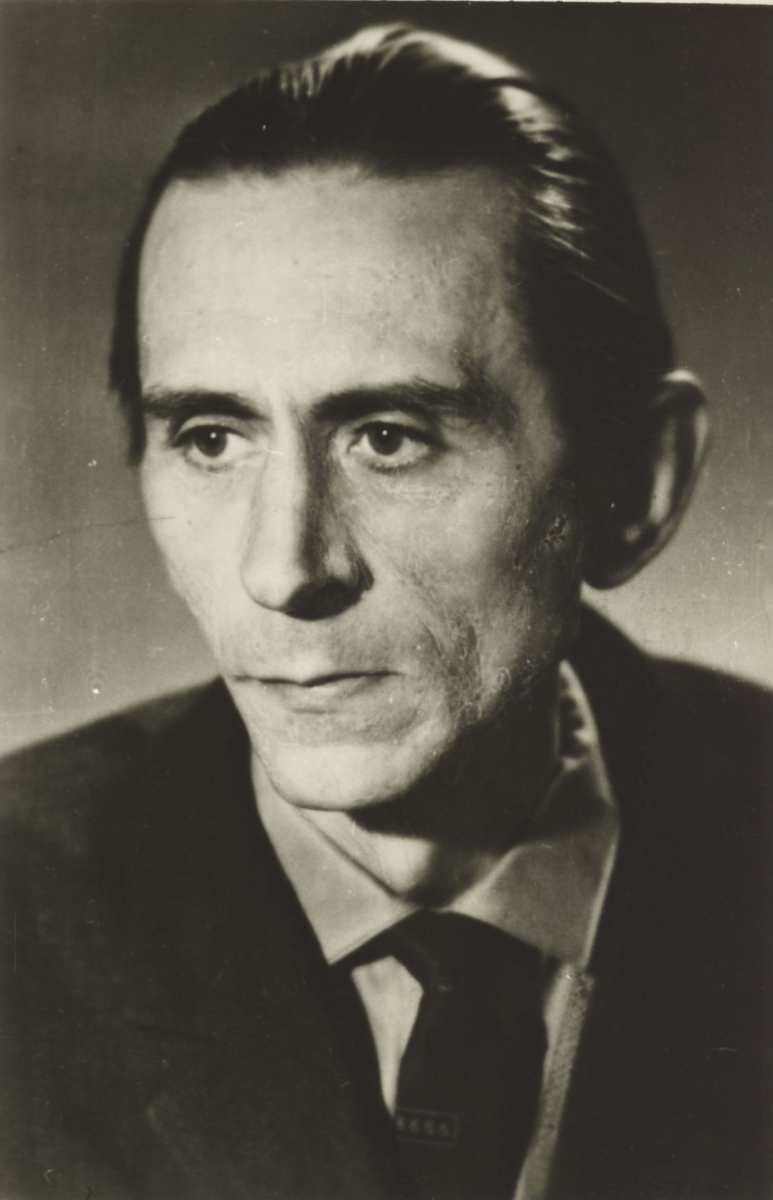
Artur Alliksaar
Artur Alliksaar (15. IV 1923 in Tartu ‒ 12. VIII 1966 in Tartu) was a poet, playwright, and translator. He completed his schooling in Tartu and went on to study law at the University of Tartu from 1941–1942 but was enlisted into the German army and subsequently did not complete his studies. From 1943–1944, he served in the Estonian Legion of Waffen-SS. Eventually he deserted, and from 1944–1949, he worked as a railway official. In 1949, he was arrested by Soviet authorities and was deported. His imprisonment led to subsequent stays in labor camps for several years, including in Narva and Mordovia. In 1957, upon his release, he was not permitted to return to Estonia and spent a year living in the Vologda oblast; however, he secretly returned to Tartu, where he spent the remainder of his life working odd jobs: again at the railroad, in construction, and at the brewery.
Alliksaar began writing poetry as a high school student and was influenced by the poets Marie Under and R.M. Rilke and the Arbujad (‘Soothsayers’), a symbolically significant group of eight poets educated in an independent Estonia (Betti Alver, Bernard Kangro, Uku Masing, Kersti Merilaas, Mart Raud, August Sang, Heiti Talvik and Paul Viiding). The Russian poetry of the 1920s also provided inspiration, especially the lyrics of the poet S. Jessenin. Alliksaar started publishing his poetry in Postimees, the Estonian newspaper, in 1942 and later in Edasi in 1958. His poetry originally followed more traditional methods, but he quickly grew into his own style and began to experiment with form and sound. He frequently wrote in free verse. With the innovative direction taken by Estonian poetry in the 1960s, his poems drew a wide following from the younger generation of poets and prosaists of the time (e.g., Andres Ehin, Jaan Kaplinski, Paul-Eerik Rummo, and Mati Unt).
After his final return to Tartu in 1958, Alliksaar took up his literary activities with great enthusiasm, as both a writer and translator. He translated German and Russian lyrics into Estonian, including poems by A. Akhmatova, V. Inber, S. Yesenin, and R.M. Rilke. Alliksaar himself saw little of his work published during his lifetime. Shortly before his death, he published the absurdist utopian play Nimetu Saar (‘The Nameless Island’, 1966), which was later performed in 1987. It was stylistically similar to his poetry. Posthumous selections of his work were compiled by Paul-Eerik Rummo from Alliksaar’s manuscripts: Olematus võiks ju ka olemata olla (‘Non-existence Could as Well Remain Non-existent’, 1968), Luule (‘Poetry’, 1976), and Väike luuleraamat (‘A Small Book of Poetry’, 1984).
Alliksaar’s poetry incorporates themes of self-fulfillment and the human intellect, the need for individual choices and freedom. He quests for truth and the long-sought meaning of life. His poetic style is characterizable by witty flashes of enlightenment, often associative in meaning, flowing imagery, and a rhythm defined by phonetic equivalencies and contrasts, which are often embedded with sound play and inventive rhymes. He later returned to a more classical style, writing poetry more elegiac and resigned in nature.
Alliksaar died from colon cancer in 1966 without ever witnessing the true influence of his work. Regardless, he managed to guide an entire generation of poets. In 1997, his collected work Päikesepillaja (‘The Sun Squanderer’) was published and became a bestseller. In 2002, Paul-Eerik Rummo compiled another collection of Alliksaar’s work titled Alliksaar armastusest (‘Alliksaar on Love’).
M. M.
Books in Estonian
Poems
Olematus võiks ju ka olemata olla. Koostanud ja järelsõna Paul-Eerik Rummo. Tallinn: Perioodika, 1968, 77 lk.
Luule. Koostanud ja saatesõna Paul-Eerik Rummo, järelsõna Karl Muru. Tallinn: Eesti Raamat, 1976, 174 lk.
Artur Alliksaar. Koostanud Paul-Eerik Rummo. Tallinn: Eesti Raamat, 1984, 168 lk. [Sari ‘Väike luuleraamat’.]
Päikesepillaja. Koostanud Urmas Tõnisson, järelsõna Arne Merilai. Tartu: Ilmamaa, 1997, 439 lk. [2. trükk: 1999; 3. trükk: 2004; 4., uuendatud trükk: 2007; 5., uuendatud trükk: 2016.]
Alliksaar armastusest. Valik ja järelsõna Paul-Eerik Rummo. Tallinn: Tänapäev, 2002, 77 lk.
Ajajõe taga: valik luulet. Koostanud Mall Jõgi. Tallinn: Tammerraamat, 2013, 198 lk.
Plays
Nimetu saar. Tallinn: Perioodika, 1966, 75 lk.



